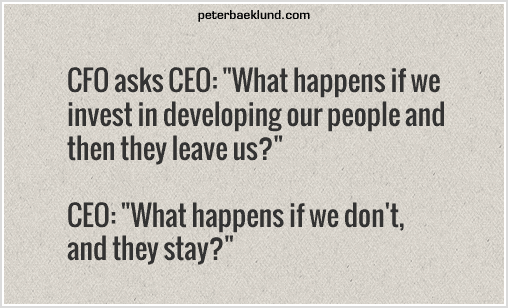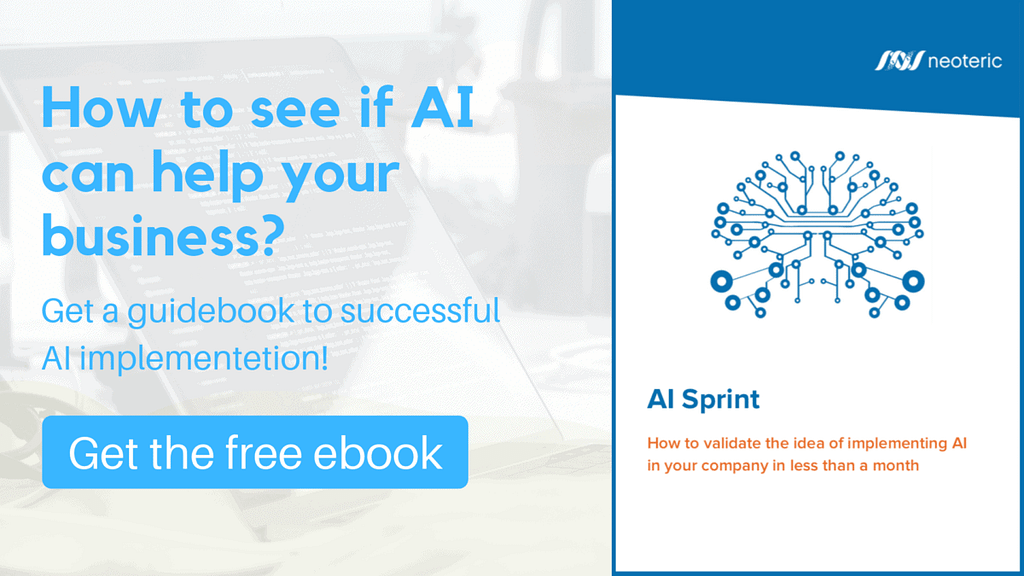Artificial intelligence is getting more advanced as well as more popular in a variety of areas. In my previous article, I wrote about AI in customer service, and now it’s time to talk about some ways to use artificial intelligence in human resources.
When we put the phrases “artificial intelligence” and “human resources” next to one another a question may pop to our minds: can those coexist? Are robots going to take our jobs? Or are they going to replace human resources specialists? Though I don’t want to take on the general topic of robots replacing humans in workplace, I’m certain that at this point HR still needs the human factor. Artificial intelligence is just a great addition to the HR professionals work, making it more efficient.
What are the benefits of artificial intelligence in human resources?
A large part of HR tasks can be given to AI to free up some of the specialists time. Automating some processes would allow the HR staff to spend more time with their employees and business partners – which can now be a struggle as it’s often difficult for them to be physically present for their coworkers and doing all the office work that they have. What’s important here, however, is to remember that automation doesn’t exclude the human touch from the processes. So what tasks can be given to artificial intelligence?
Artificial intelligence in human resources – what does it do?
Talent acquisition
When you think about it, recruitment can be quite a gruesome task. It’s great to have a lot of candidates but when consider how much time will be spent on going through their CVs, social media, and others… That’s a whole lot of time. And every candidate is waiting for an answer. Being on the other side, applying for a new job, you want to have a good experience as well. Receiving a kind email, even if the news isn’t what we wanted, makes a difference. The recruiter took their time to respond and that’s the treatment job candidates expect.
If the recruiter has to screen every single candidate, the response time can be longer. Not only that, but often recruiters will have to cut corners and will only look for some key elements in a CV, missing some other important points. The robots that read candidate CVs can do that – and not only will they read the entire CV, they will also eliminate 75% of candidates thus leaving the recruiter with a short (or at least shorter) list of eligible candidates. That’s where a real person steps in. It takes a human to analyze the candidates’ experience and assess their skills. Artificial intelligence helps recruiters be more efficient and it also improves the quality of hiring decisions.
Onboarding
Your employees happiness matters, that’s a known fact. And new employees are quite demanding. They’re going to ask questions the answers to are obvious to more experienced employees. But they need the answers, how else will they learn? They need to be trained and find the right people to get the right information. At this early stage, many new employees find it difficult to adapt if there are no proper onboarding procedures. After all, it’s not that easy to just join a new company, make new friends, and feel like home on day one.
The newbies could use someone to guide them in their first steps but time is a problem once again. If you hire many people in a month, you can’t dedicate enough time to each individual and still pay as much attention to your other tasks. Luckily AI has got it covered. Artificial intelligence can customize the onboarding steps to each position, making it stress-free and providing great employee experience. A practice like that proves to be successful since new workers who had a well-planned onboarding program are 69% more likely to remain at the company for up to 3 years.
Employee training
I’m sure you’ve seen this quote before:

Constant development is a must. Being the boss or manager, however, you don’t always know what training will be best for your employees, so they can keep growing and improving their professional skills. Artificial intelligence can successfully plan and coordinate training programs for your staff. AI can be used in a form of digital classrooms or online courses but it can also help schedule training in the time frames that are suitable to all staff members.
Performance analysis
Monitoring performance generates large volumes of data that has to be processed. Artificial intelligence is very useful here: it can easily analyze all the available data and sort it out to provide human resources specialists with valuable insights on the employees. Using AI solutions, HR managers are able to set clearly defined objectives. The performance of each employee will then be compared to those objectives. Such a practice will help increase productivity within teams and also identify whether any team member shows lack of engagement.
Retention
Is it possible to predict who’s going to leave your company? You can look for certain “signs”, sure, but how reliable are these? Artificial intelligence doesn’t rely on a gut feeling and it can predict which team member is planning to leave. 57% of organizations see employee retention as a big problem and it’s true – hiring people may be difficult, but it’s not any easier to keep them. AI can help here: not only can it analyze data about an employee and, comparing it to other data available, identify how likely the worker is to leave the company, but it can also find ways to make them want to stay.
AI helps organizations see the needs of their employees and matches them with the right benefits. Thanks to AI solutions you’ll know that Jake is struggling with work-life balance and Mike should get a raise. This way, a lot of pressure is taken off of HR managers – they don’t have to guess how to make people happy, they only act on the data delivered to them. What’s more, they can prevent problems from occurring in the first place if the system notices that something’s going on.
Is it necessary to use artificial intelligence in human resources?
Nothing really is necessary. But if there is a solution that can make your work easier, help you understand your coworkers better, be more efficient, and improve overall results, why wouldn’t you use it? The truth is that artificial intelligence is everywhere these days and it’s not here to dominate humanity. Quite the contrary: it supports people and takes the tasks they dislike away from them. What you should look for is synergy between people and AI. This way, you’ll make sure that everyone’s happy and, at the same time, your results happen to be better as well. If you want to know more about the possibilities that AI offers – let’s talk!

